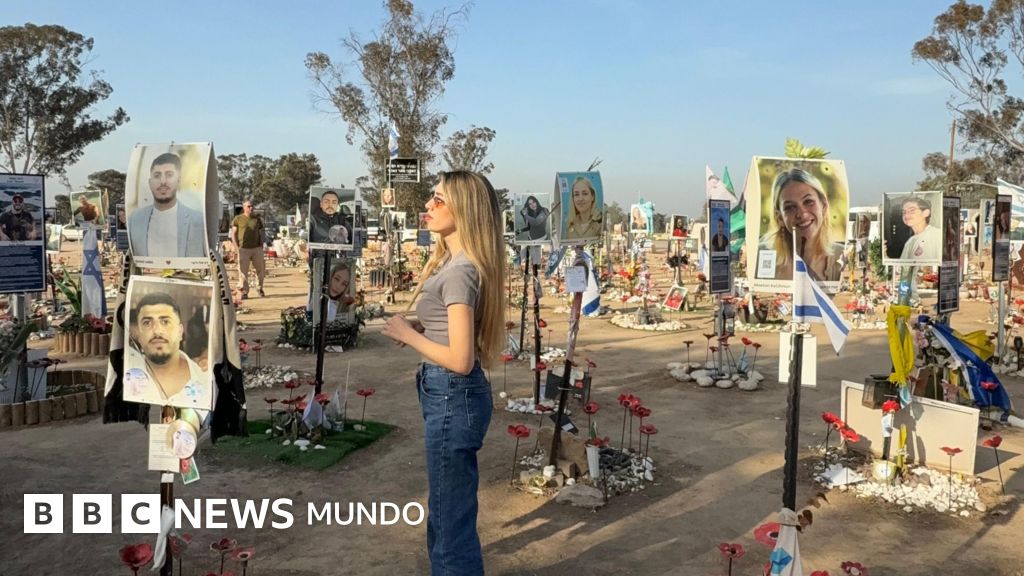
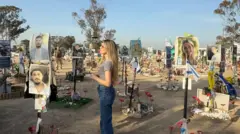
Image source, Andrea Bisso
“I have to cut the interview, I'm sorry. I just arrived an alert and I have to run to the shelter.”
Thus ends my first attempt to talk with Andrea Bisso, a Peruvian who moved seven years ago to Israel to meet with his Israeli partner.
From her apartment in northern Tel Aviv, this 29 -year -old girl, who works as a creator of audiovisual content, says she lives with a constant fear and anxiety from the early hours of Friday, June 13.
“There were rumors that Iran wanted to attack, and at 2:58 in the morning a very different alert came to previous alerts, stronger, indicating that we approach the shelters,” he says in an interview with BBC Mundo.
“We went out with backpacks, because it was not any attack, but one of Iran.”
Last week, Israel began the largest wave of aerial bombing against Iran in years, with the aim of damaging the nuclear program of the Islamic Republic.
This generated Tehran's response and since then both countries have intensified their attacks.
The alerts have become Andrea's day to day and millions of Israelis.
“The first days of us arrived up to three and four alerts per day, one every three or four hours,” he says.
“From 7 in the morning on Thursday until today we had not received any alert, so the latter seemed very strange and I was scared.”
Andrea admits that every time he receives an alert he gets very nervous.
He explains that he fears to hear the noise and explosions he has heard during the last week.
“The nerves kill me because you never know where the missile will fall,” he continues.
A couple of days ago a missile fell near his home and remembers that he was in shock throughout the day.
Due to his nerves, he is always one of the first to hurry to the shelter that is two blocks from his apartment.
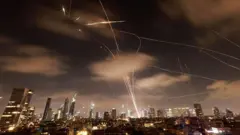
Image source, Getty Images
Iranian attacks have impacted residential areas, high -rise buildings in the vicinity of Tel Aviv and even one of the main hospitals in the south of the country.
They have left at least 24 dead and 271 wounded in Israel since the beginning of the offensive, according to data from the Israeli government.
Similarly, the capital of Iran and other cities in the country have been the target of a large number of Israeli attacks since the early hours of Friday, June 13.
According to American NGO Human Rights Activists, more than 580 people have died to date in the Persian country due to armed conflict.
And anxiety and fear are also part of the day to day in Iran.
In Iran: “No one walks down the street”
The Brazilian Antônio Guerra Peixe, who traveled to Iran to help train the adult beach hogging federation of the Persian country, tells that he was with a group at the Tehran airport, ready to embark, when he heard an explosion in the distance.
“Everything was silent. I felt strange looks from the people, there was a little shock in the lobby and then our flight was canceled.”
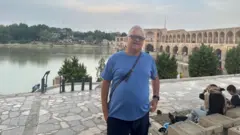
Image source, Personal archive
From that moment until now, everything has gone down.
“From the airport they transferred to this hotel where I have been housed for several days,” this 68 -year -old man from Rio de Janeiro tells BBC News Brazil.
Antônio is part of a group of Brazilians who expect actions of the Brazilian embassy to be evacuated from the country that has been at war for a week.
The Brazilian tells that at the hotel where he stays, located in sector three of Tehran, in a residential area with several embassies, there are few guests and that in addition to him there are other foreigners housed.
“When I look out the window, I see no movement, absolutely nobody walking down the street. So far there is no food, but today I noticed that breakfast was a little more scarce compared to the first days. I saw less options for juices and fruits, but there is no shortage,” he says.
“People have abandoned the capital”
Antônio tells that his hotel has an underground area so that people can take refuge.
“The other day we heard some explosions and it was a tense moment. Here at the hotel they warned us that if the situation was tense we could go down, but so far I have not gone,” he explains.
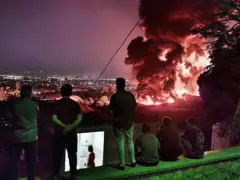
Image source, Getty Images
The Brazilian says that there are few open businesses in Tehran, but that public services such as electricity and water, for now, continue to work.
“The city has not collapsed. The greatest impact we have seen so far is how desolate the streets are. People have abandoned the capital and they have gone to its summer houses or its towns of origin,” he describes.
“Some supermarkets remain open and many people are supplying food. Buying meat or rice is a bit more complicated now,” he explains.
“People are nervous, but it doesn't show it”
From the other side of the conflict, Andrea describes the atmosphere in Tel Aviv as tense.
“I think people are nervous, but it does not show it. Some have become accustomed to this situation. The Israelis are relaxed and do not panic quickly. They simply continue their lives as if nothing happened. Now even the beaches are full,” he says.
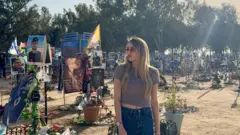
Image source, Andrea Bisso
“That is a very Israeli attitude,” he adds.
Although he loves life in Israel, and especially in Tel Aviv, Andrea would like to leave the country for a period to “rest” of alarms.
But it can't. Flights are canceled and the only way to leave the country is via terrestrial borders, which are already collapsed.
However, he points out that as soon as there are flights available he plans to make a trip to Europe or Peru to take a break.
“What we want most is peace and tranquility”
As when Gaza's War, he affirms that everyone sorry for the situation.
“We are suffering both sides. We have no peace of mind. Something that many people do not understand is that Israel is fighting Hamas's terrorism and not against the people of Gaza,” he says.
“It's hard to say it, but in every war there are dead and side and that is unfortunate. Nobody wants that.”
Andrea expects the situation to improve, to reach an agreement already a stop on fire.
“I am sure that both the Iranian people and the Israeli people what we want most is peace and tranquility.”
* With information from Lucila Runnacles

Subscribe here To our new newsletter to receive every Friday a selection of our best content of the week.
And remember that you can receive notifications in our app. Download the latest version and act.